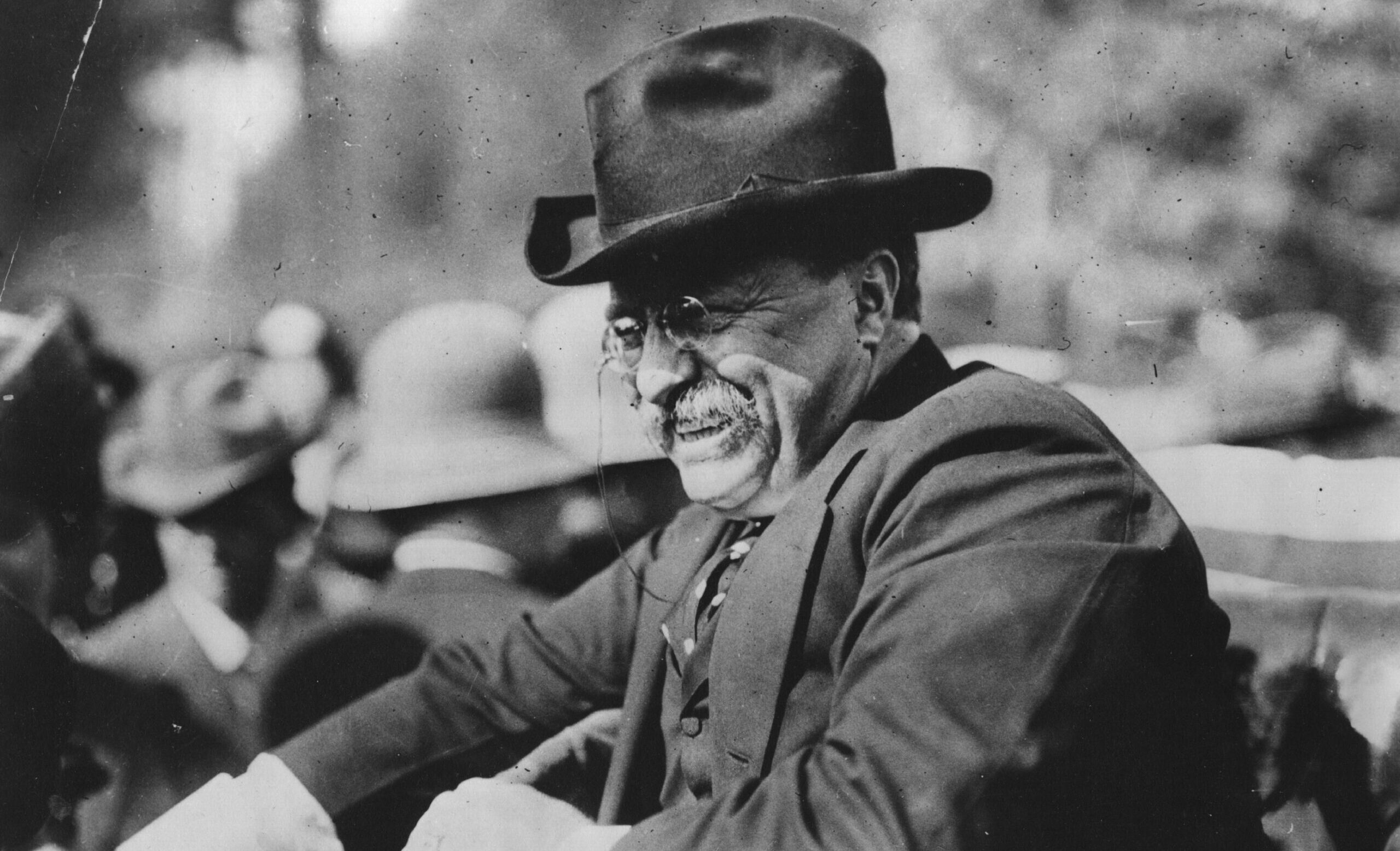Political blazes are primal forces, their embers either nurturing rebirth or consuming everything. Some fires purge; others merely destroy.
Kevin Roberts, the president of the Heritage Foundation, pursues the former with incendiary fervor, igniting a provocative metaphor in Dawn’s Early Light, originally subtitled Burning Down Washington to Save America. “Any good conservationist can tell you that fire is an intrinsic part of the cycle of life,” he writes. “Indeed, without regular controlled burns, a conflagration eventually occurs that wrecks the forest rather than renews it, that chars the earth instead of laying the ground for new life.”
A controlled burn reduces hazardous accumulations, eradicates disease, recycles nutrients, removes unwanted growth, and creates room for the delicate tendrils of new life to emerge from the ashes. As in the forest, so in government; such a burn can be not destruction but necessary intervention.
Roberts seeks “to confront our present situation, to inspire the New Conservative Movement to rekindle the fire of the American tradition, and to empower real Americans to take back our country.” This vision of societal change involves a conflict deeper than partisanship, Roberts writes: “The most important cleavage in Western politics today is not liberals versus conservatives or the people versus the elite; it is the struggle between the Party of Creation—those who defend the God-given natural order that is capable of generating flourishing and new life if we learn to live within it—and the Party of Destruction—those who seek to abolish the existing order in the name of emancipation, freedom, and progress.” His concept of creation defies simple party alignment. The “Uniparty” (his favored term) is the central antagonist: an entrenched establishment seeking to maintain its power at all costs, effectively obstructing genuine democratic expression—and risking larger political conflagrations as a result.
Roberts seeks “to confront our present situation, to inspire the New Conservative Movement to rekindle the fire of the American tradition, and to empower real Americans to take back our country.”
In a passage stylistically reminiscent of the late Tom Wolfe, Roberts submits that “parasites” have taken over our country, including “pantsuited girlboss advertising executives, Skittle-haired they/them activists, soy-faced pajama-clad work-from-home HR apparatchiks, Adderall-addicted dog mom diversity consultants, nasally voiced Ivy League regulatory lawyers, obese George Soros–funded police abolitionist district attorneys, hipster trust fund socialists.”
These elites are not only largely responsible for the state of America; on both sides of the political aisle, they also largely ignore the harm they have caused. Roberts presents a more clear-eyed diagnosis of contemporary America: our maladies are fundamentally spiritual and cultural, transcending policy prescriptions. The conservative proposition that free markets and individual liberty would self-regulate has become, in his view, naïve. We are no longer, he maintains, in an era when laissez-faire approaches alone suffice; instead, we find ourselves in a metaphorical “twilight” with predatory forces (“wolves in the dark”) threatening the nation’s core institutions.
Since Roberts sees the threat as not just a matter of policy but an existential menace, the book should be approached not as a step-by-step guide to legislative fixes or governmental correctives for every issue but as a broader diagnosis of our society’s condition. He emphasizes excellence over mediocrity, courage over cowardice, and virtue over vice to advance broad philosophical principles, prioritizing cultural transformation over bureaucratic tinkering and the technical minutiae of policy mechanics. The state, in Roberts’s conception, is fundamentally inadequate to cultivate virtue and the good life. It’s an administrative apparatus incapable of genuine human connection or solutions: “The state has only wards. It has no sons and daughters. It cannot love.” Populism is not, for Roberts, a crude democratic impulse; it’s a good one, even potentially creative, productive, or generative. And he sees institutional demolition as a form of stewardship, not nihilism. Some institutions, in his view, cannot be saved and must be deliberately dismantled. These include, among others, certain universities, the National Institute of Allergy and Infectious Disease, the FBI, and the Department of Education. He likens the Southern Baptist Convention’s renewal to a controlled burn, describing how the denomination’s confrontation with liberal theology led to new growth and vitality.
The book is unapologetically divisive, self-consciously so. Roberts understands that meaningful change requires confrontation, not consensus. Donald Trump’s landslide election, along with Republican control of Congress and a 6–3 conservative majority on the Supreme Court, suggests that Roberts is right to be confident that “we are going to win.”
Such confidence stems not from political calculation but from a deeper conviction, namely his belief that “we’re on the side of natural law, of reality, of deep-seated human instincts, which ideology and technology can defer for only so long.” He argues that in the end, “excellence beats mediocrity, fecundity beats sterility, courage beats cowardice, justice beats false equality, truth beats lies, virtue beats vice, faith beats cynicism, and hope beats despair.”
Roberts’s intellectual and moral framework is not merely academic (his doctorate from the University of Texas is in history) but forged in the crucible of tragedy and resilience. His story of being raised in Louisiana’s working-class Cajun culture is a quintessentially American account of familial complexity and hard-won wisdom.
The autobiographical fragments are more than spare anecdotes; they are a testament to the social pathologies that Roberts argues are eroding the nation’s cultural foundations. The story of his brother Doug—whose life unraveled through alcoholism and ended in suicide, using a gun gifted by a beloved stepfather—underscores a broader societal disintegration. Such loss is not sentimentalized but transformed into a philosophical reflection on family, purpose, and social renewal.
Roberts’s grandfather, Mark “Pete” Pitre—described as a godly man who loved his country—represents a nostalgic yet solemn archetype of working-class virtue. These blue-collar roots inform Roberts’s conviction that the conservative movement must not be an elite intellectual exercise but a genuine, rough-and-tumble struggle for middle-class economic stability.
The personal becomes political most poignantly in Roberts’s reflection that having children “forces you to grow up, give up childish things, and live in the real world.” This is both a private reflection and a sociological diagnosis: family represents the fundamental unit of social regeneration, the primary bulwark against cultural entropy. His prescription—that the conservative movement must strive to make a middle-class lifestyle attainable on a single income—is not an abstract economic theory but a conviction born from witnessing familial and social dissolution.
What are the policy implications of this emphasis? He points to countries such as Israel, Hungary, and the Republic of Georgia, which use significant public spending to highlight the importance of the family for the nation’s future. He suggests expanding the child tax credit and providing financial support beginning at conception, potentially through retroactive tax refunds or a newborn bonus (e.g., cash allowances, grants, or tax reductions or exemptions to incentivize having babies within marriage). He also advocates for “radical measures,” such as offering low-interest loans to young, first-time married couples, with a significant portion forgiven for each child they have. Another proposal is a Family Flexible Savings Account (FFSA), which would allow for income tax deductions as an alternative to welfare programs. This system would incentivize marriage by offering more significant deductions for married couples and providing bonuses “for every third child or more.”
These proposals for government-funded family incentives are particularly contentious for conservatives, who, in the U.S. at least, have historically resisted using tax dollars to encourage childbearing. On matters other than family policy, however, Roberts primarily champions solutions rooted in private initiative, cultural change, and social institutions rather than government intervention or legislation.
His strategic deployment of quotation marks around “free market,” amid criticisms of certain forms of business and globalism, serves a dual purpose: it questions whether contemporary market arrangements truly merit that designation while simultaneously preserving the possibility that his quarrel lies not with markets per se but with their corporatist instantiation. Indeed, he argues that what presents itself as private-sector innovation in technology is often merely government power masquerading in entrepreneurial garb. Similarly, he demonstrates that ostensibly private financial decisions—such as debanking—reveal themselves upon closer inspection to be choreographed exercises in state coercion.
The distinction is subtle but significant. Markets, in his view, are not simply mechanisms for the endless cycle of acquisition and consumption but rather social institutions: “The economy was made for people, not the other way around.” As such, they should serve higher ends: the nurturing of children, the preservation of tradition, and the flourishing of faith. His heterodoxy thus stems not from opposition to markets themselves but from his insistence that they serve purposes beyond the purely economic. Yet he draws clear lines, stating, “I depart from some of my friends in the so-called New Right who are friendly toward the proactive use of government regulation.”
A self-described “parental rights extremist,” Roberts advocates school choice, asserting that those he calls the “Party of Destruction” recognized long ago that shaping children’s beliefs through education could help to secure ideological support for their agenda. Drawing on his tenure as president of Wyoming Catholic College and his engagement with the Catholic intellectual tradition, he brings scholarly gravitas to his defense of Western civilization’s patrimony.
His academic formation infuses his understanding of America’s founding principles not as historical artifacts only but as repositories of accumulated wisdom that speak to contemporary challenges. He finds particular promise in incipient alternatives to conventional education, celebrating the Classical Learning Test as a counterweight to the SAT and lauding Hillsdale College’s Barney Charter School Initiative as an exemplar of the revitalization of education.
His geopolitical vision represents a striking departure from erstwhile neoconservative orthodoxy. A chastened advocate of the Iraq invasion, Roberts now counsels prudential restraint in foreign affairs, particularly regarding Ukraine’s seemingly bottomless appetite for American largesse. His stance on China displays similar sobriety: he understands that environmental, social, and governance (ESG) investing functions are too often an unwitting conduit of American capital to a regime conspicuously unmoved by Western environmental pieties.
Most ambitiously, Roberts envisions a reconstitution of American leadership through interstate compacts—a muscular federalism to counter federal overreach, as exemplified by red-state resistance to ESG mandates. Immigration restriction and border security figure prominently in this agenda, but perhaps most intriguing is his blueprint for reformation of the elite class: “We need to build institutions and practices to knit the elites and the people back together again, including a national public service program that exposes coastal kids to the rest of the United States, reclaimed control of federal humanities and arts funding that supports telling America’s story (and not faux avant-garde trash that tears America down), and alternative institutions of elite education and selection.”
The flame remains a paradox: wild yet directed, destructive yet purifying. Roberts’s tone is urgent. He advocates for what he dubs a “glorious restoration,” not through incremental adjustments but through a civilizational reclamation grounded in the immutable and timeless: natural law, deep-seated human instincts, and what T. S. Eliot and Russell Kirk called “the permanent things” (which Roberts lists as “family,” “faith,” “community,” “work,” and “nation”).
Roberts admits his project is “radical . . . in the original Latin sense of radix, the roots,” which, of course, grow into plants, foliage, florae, and trees. For every forest and every nation, regeneration demands the occasional flame. Although renewal’s precise shape and look remain uncertain, clearing away corruption and decay from sound soil will yield healthier growth.















